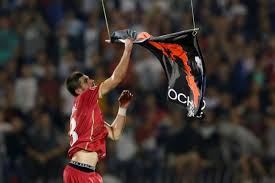By Mark Baber
July 13 – Friday’s decision by the Court of Arbitration in Sport (CAS) to overturn the ruling of UEFA concerning the Serbia-Albania game of October 14 and award the game to Albania leaves the court open to accusations it has been influenced by anti-Serbian sentiment.
CAS rejected the appeal filed by the Serbian FA (FAS), whilst upholding in part the appeal filed by the Albanian FA (FAA) deeming the Serbia-Albania match to be forfeited by Serbia (0-3), effectively ending any chance for Serbia to participate in Euro 2016, whilst giving Albania a new lease of life in the competition.
The match in question was marked by early crowd trouble but things got out of hand after a drone carrying a highly provocative banner claiming parts of Serbia for a Greater Albania, was flown around the stadium before one of the Serbian players managed to grab it. Video footage shows Albanian players running to wrest the banner from the Serbians in what appears to be an assault – unleashing mayhem as players, officials and some fans joined the melee.
As the Albanian players fled the pitch objects were hurled at them and some fans tried to assault them. UEFA claim that despite numerous requests the Albanians refused to re-enter the field of play and it was on that basis they forfeited the game, although UEFA also docked Serbia three points for the crowd misbehaviour.
CAS have reversed UEFA’s decision on the match forfeit, saying that “the CAS Panel found that the evidence did not reveal that the FAA refused to play following an order issued by the referee. The CAS Panel was unable to ascertain to its comfortable satisfaction that the referee issued a clear, direct and unconditional order to the players to resume the match on the basis of a definite decision that safety had been assured.”
The wording of the CAS decision is obviously open to interpretation – whether an order was given to the players or whether the order given was not on the proper basis and how this relates to UEFA’s regulations is unclear. In any case it is remarkable that the CAS should overrule the match organisers and UEFA’s Appeal Panel as to why the match was called off.
CAS then goes on to blame the stoppage and eventual abandonment of the match squarely on the shoulders of the Serbians saying: “The Panel found that the match stoppage and the eventual abandonment of the match were caused by security lapses of the organisers and acts of violence exerted on the Albanian players by the Serbian fans and at least one security steward. As such, the Panel holds that the Football Association of Serbia (FAS) and not the FAA must be considered as responsible for the match not being played in full, in violation of Article 27.01 of the Regulations of the UEFA European Football Championship 2014-2016. In light of this finding, the CAS Panel has decided that the UEFA European Championship qualifying Group I match between Serbia and Albania be deemed to have been forfeited by the FAS by the score of 0:3.”
The decision appears to ignore the assaults on the Serbian players by Albanian players whilst the matter becomes even more opaque when CAS says they “went on to find, in line with UEFA, that the FAA was responsible for the drone operated during the match, carrying a banner depicting Albanian nationalistic and patriotic symbols, and confirmed the fine of €100,000 imposed on the FAA.”
That the symbols on the banner are more than just a “nationalistic and patriotic” requires a minimum of knowledge of Balkan history, but equally baffling to the Serbians must be the decoupling of responsibility for the flying of the drone and the eventual abandonment of the match, with suspicion inevitably falling on the composition of the CAS panel and whether anti-Serbian sentiment played a role.
John Coates, President of the International Council of Arbitration for Sport (ICAS), the governing body of CAS, remarked in November 2014 as eight new members joined the ICAS saying; “I am also very pleased that the widespread geographic representation of ICAS is strengthened, which guarantees a fair representation of the different juridical cultures for the benefit of this World supreme court for sport.” Coates also remarked that: “It is worth noting that, for the first time, the ICAS will be composed of an equal number of men and women.”
So whilst the principle of fair representation appears to be accepted, in practice on the football list (from which the CAS panel is chosen), 57 of the 90 members are from UEFA, only two from Eastern Europe, and more come from five European countries (Switzerland, Italy, the UK, Germany and Spain) than from all the non-UEFA countries combined. On top of which there appear to be only five women.
CAS has said the decisions on the Serbia-Albania match will be on their website in the coming days, as soon as the parties concerned have given their agreement, but in the meantime have refused further comment.
It remains to be seen if explanations will be provided as to why the CAS did not accept UEFA’s position that they (as match organisers) called the game off because the Albania side refused to play, why they placed the blame for the abandonment on assaults on Albanian players but ignored assaults by Albanian players on Serbian players that preceded them, why they discounted the opinion of most observers that the flying of the banner was the original cause of the abandonment, and why they described the banner as merely “depicting Albanian nationalistic and patriotic symbols.”
Contact the writer of this story at moc.l1745046997labto1745046997ofdlr1745046997owedi1745046997sni@r1745046997ebab.1745046997kram1745046997

